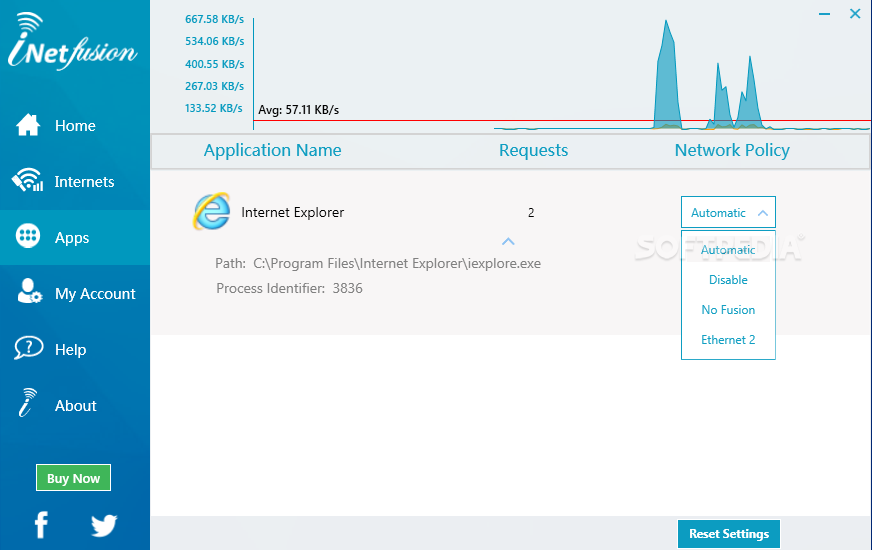

#Speedify vs inetfusion code
#Speedify vs inetfusion software
Encryption - WireGuard uses ChaCha20 which is an efficient, purely software encryption algorithm, which can outperform other algorithms like AES when executed all in software by the processor.We set up a single server to run both the Speedify software and WireGuard software to take out any effects of varying server performance, different routes over the Internet, etc. It is important to note that these tests used the exact same devices, Internet connection, and server instance, so that the only difference was in client software and the VPN protocol and efficiency itself.There will always be some overhead to running a VPN, but Speedify has minimal impact on connection performance. In both cases, Speedify came close to maxing out the available bandwidth that we saw without the VPN.
#Speedify vs inetfusion android
For Linux, Speedify was 55% faster than WireGuard, while on Android Speedify is 220% faster. Speedify test results: First looking at the high speed tests, Speedify was able to beat out WireGuard on high speed connections on both Linux and Android. Speedify is able to maintain the VPN session and seamlessly switch between different Internet connections, as the device leaves and joins different networks, without interrupting existing downloads, calls, etc. However, this is one area where Speedify excels. No failover tests were performed, as WireGuard breaks the connection on failover. Packet loss was configured with the OpenWrt router and we ran in single socket mode to simulate a single socket activity, such as downloading a file, watching a video, etc.

We ran with no VPN for control, WireGuard, and Speedify on the same setup. The Wi-Fi network was backed by a 1 Gbps Verizon Fios Internet connection. Then, we wanted to simulate real life conditions of moving around the house or through the city - we tested an Android phone with 25 Mbps Wi-Fi at various packet loss rates. This illustrates some typical conditions for working in an office / from home on a high speed broadband connection. We ran with no VPN, WireGuard, and Speedify. Speedify testing scenarios: First, we tested with a Linux laptop connected with Ethernet to the 1 Gbps connection. The results in the summary table below are an average of 3 test runs.įor the packet loss tests, we used an OpenWrt router using netem to introduce packet loss into the network. We ran tests using two different client devices: a Pixel 2 smartphone running Android 11 and a Ubuntu 18.04 Laptop with an i7-8565U on Verizon Fios Internet. We used the same VPN server for all tests, running on Digital Ocean. So we installed the latest stable version of WireGuard on one of our servers. Speedify test setup : we need to compare apples to apples. That said, let’s see how these two compare in real life tests.

As both protocols are a step forward from the traditional VPNs, here is a sweet section for those of you who are more tech savvy - we compare WireGuard and Speedify side-by-side in terms of specifications.


 0 kommentar(er)
0 kommentar(er)
